
As a very popular IP, "Ghost Blowing the Lamp" has been adapted many times in the form of online dramas, online dramas, and movies due to the dispersion of copyrights. However, most of the time, the quality is very unstable, and the Douban score hovers around 3-4 points. There are only two exceptions, one is "Jing Jue Ancient City" (Jin Dong's version) by Noon Sunshine Team, but only this one was filmed; the other is "Huangpizi Grave", "Nv Qing Xiangxi" and "Longling" by Guan Hu team The Labyrinth", "Insect Valley of Yunnan", "Kunlun Shrine".
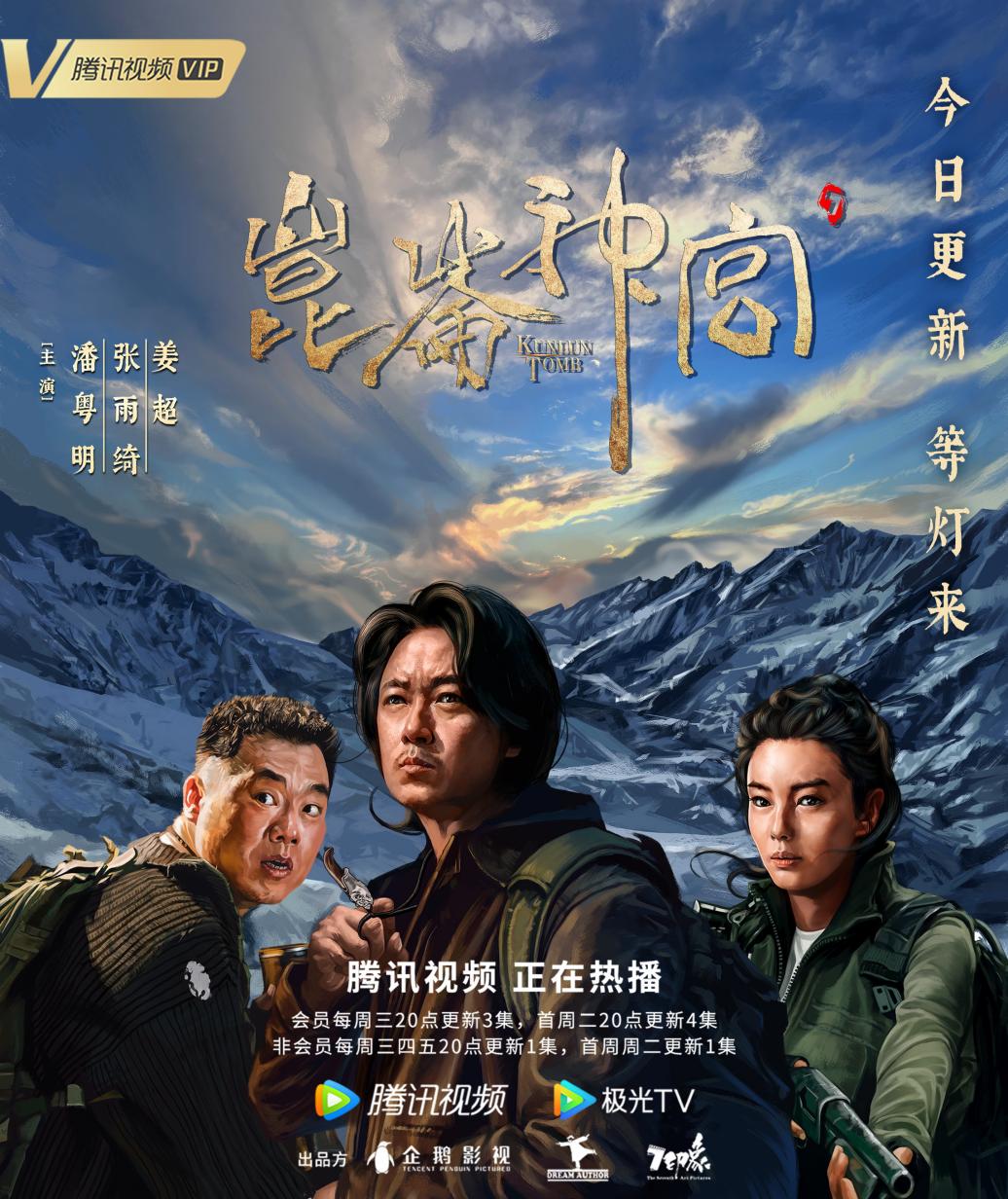
"Kunlun Shrine" poster
"Huangpizifen" is still bad, "Nu Qing Xiangxi" began to improve, and "Longling Cave" established the "iron triangle" composed of Pan Yueming, Zhang Yuqi and Jiang Chao. Since then, it has finally changed the "Iron Triangle" instead of shooting a new drama. Pan Yueming and other three signed five dramas at one time. In addition to "Longling Labyrinth", "Yunnan Worm Valley" and "Kunlun Shrine" that have already been broadcast, there are also "Return to the South China Sea" currently being filmed, and "Wuxia Coffin Mountain" which will be filmed in the future.
"Longling Grottoes" has a good reputation, with a Douban score of 8.2; the special effects of "Yunnan Insect Valley" are not small, but the reputation is mediocre and barely passable; this time "Kunlun Shrine" is OK again, with a Douban score of 8.2, After that, the score fluctuated somewhat. After the unexpected direct finale on October 5, the Douban score remained stable at 8 points.
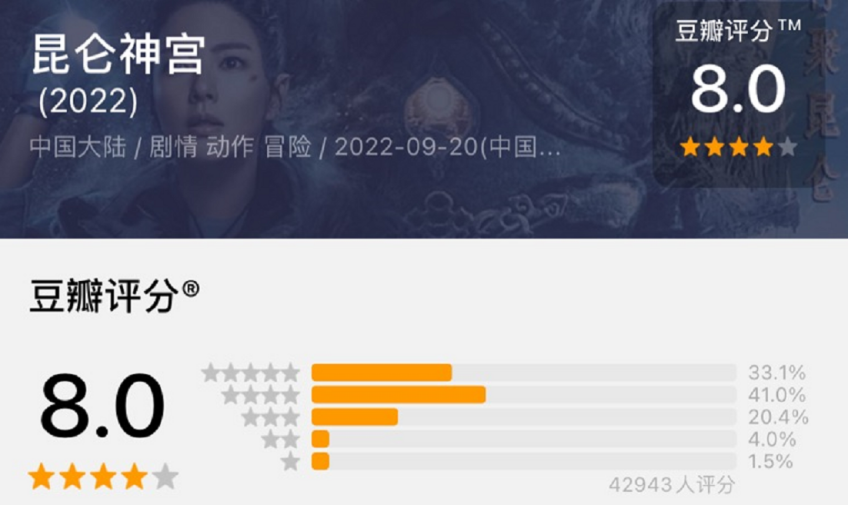
After the finale, the Douban score is 8 points
This is a relatively objective score. "Kunlun Shrine" has somewhat learned the lessons of "Insect Valley of Yunnan", and there are several good changes intuitively.
First, Teacher Pan finally lost a bit of weight. This kind of adventure drama is not easy to perform, and most of the scenes are performed without physical objects (the later stage is entirely dependent on special effects). It's a pity that in "Insect Valley of Yunnan", he is really a bit fat and lacks the heroic spirit of Hu Bayi as a former soldier. In "Kunlun Shrine", Pan Yueming has lost some weight, and his spirit has improved a lot, which is more in line with the character's temperament.
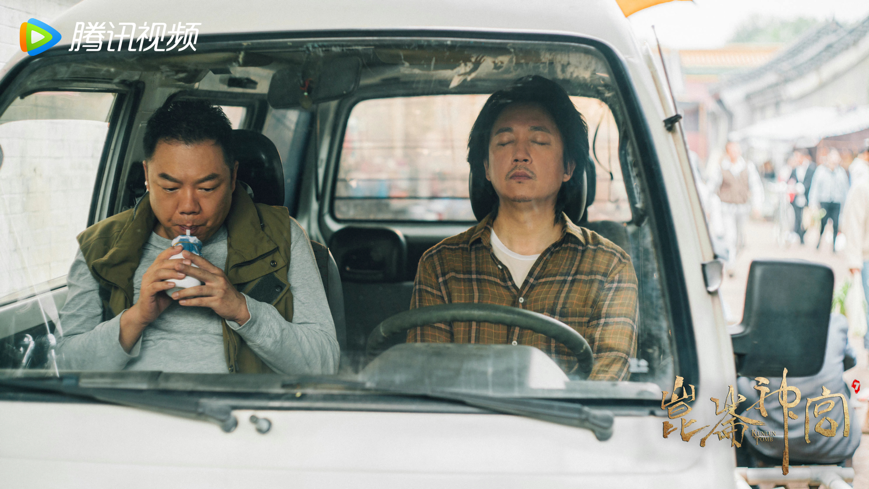
Fatty Wang (played by Jiang Chao) and Hu Bayi (played by Pan Yueming)
Second, the "Iron Triangle" is basically in the frame of the character setting, and the expression of the relationship between the characters is so far.
Fatty Wang has always been a very lovable character. Although he is greedy for money, lustful, poor-mouthed and cheap, there are subtleties in the rough, and love and righteousness are important. In order to let Fatty Wang play more of his sense of humor, "Insect Valley of Yunnan" highlights his broken mouth too much, weakening his role in the exploration. At the same time, the screenwriter clarified the relationship between Hu Bayi and Shirley Yang, and some interactive scenes are even a bit industrial saccharin, which is inconsistent with the main line of the adventure and the characters.
In "Kunlun Shrine", Fatty Wang is still a pistachio. During the thrilling adventure, he is a necessary adjustment to the rhythm of the plot, and it does not obscure his ability.
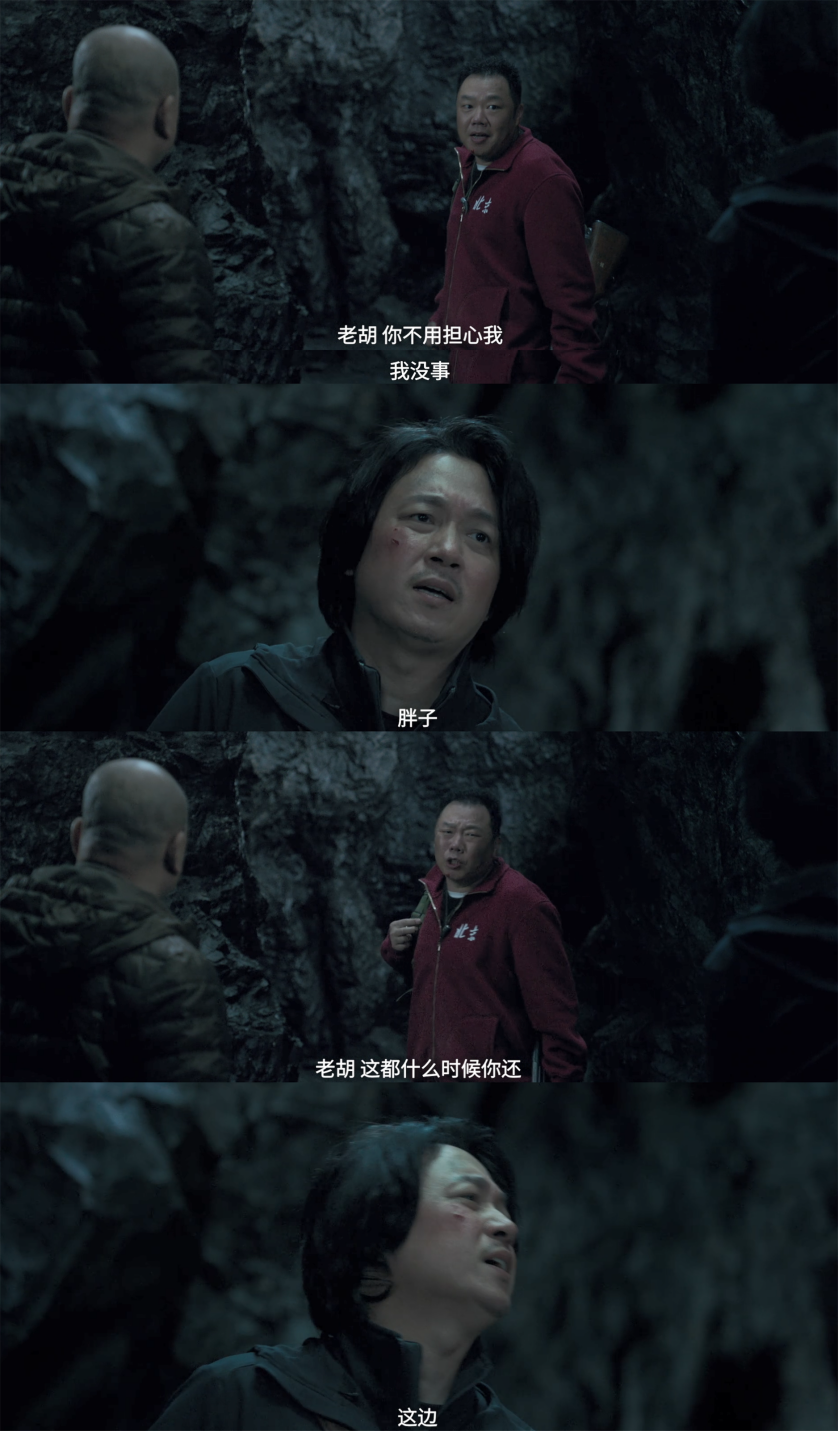
Not to worry about you, but to remind you that you are going in the wrong direction
The relationship between Hu Bayi and Shirley Yang lost the greasy feeling of "Insect Valley of Yunnan", returned to restraint, and had the mature and subtle beauty to the point. And the "Iron Triangle" shows the deep friendship at the juncture of life and death, which is still moving.
Third, the last mistake in the adaptation of "Insect Valley of Yunnan" was that a villager's branch was added, which made it too late to enter the core plot, and the fans of the original novel were full of complaints. "Kunlun Shrine" avoids this, without adding random characters, let alone adding drama to supporting roles. Even, several supporting roles in this version are the most complete compared to previous works. The death of Han Shuna, the death of the first day of the first year, and the death of Peter Huang are all the highlight moments of the characters, both tragic and sublime; the adaptation of Uncle Ming and Ah Xiang is in line with the logic of the characters' behavior and is very three-dimensional.

Peter Huang, who wanted to eat pomegranates when he was a child, but never got one, finally fulfilled his childhood regret in his dying fantasy.
Of course, it is impossible to get praise just by doing the above points. As an adventure drama, "Kunlun Shrine" has to give full play to the core charm of this type of drama in order to attract the core audience.
Adventure dramas and tomb robbing novels share the same genes, that is, they can help the audience escape from daily life and enter an exotic world, during which they can traverse all kinds of bizarre and bizarre things that are unlikely to be seen in daily life, and feel terror, horror, High concentration of emotions such as tension and stimulation. The more the work can make people immersed in it, the more the audience can experience the relaxation and pleasure released after extreme emotional tension, and the score of the work will naturally be higher.
Therefore, whether it is a tomb robbery novel or an adventure drama, the basic task of the creator is to create one mysterious and fascinating exotic space after another, like an upgrade task in the game, from one to the next. Writers of novels must have a strong imagination, as well as extensive knowledge and knowledge, such as myths and legends, barnyard history, yin and yang theory, feng shui theory, knowledge of cultural relics, biological knowledge, etc., in order to say different things in different tombs. Dao, choreographed all kinds of bizarre "monsters". When it comes to film and television dramas, the test is the ability of the creator to describe the text into a picture. They must turn the imaginative text into an intuitive and strong visual impact.
"Kunlun Shrine" said that the expedition of the Xianwang Tomb in Yunnan was over, although the Iron Triangle got the Zhuo Chenzhu, thinking that the curse of erythema on the body could be solved. But I have Zong Chenzhu, but I don't know how to use it. As several people got sicker, their task of deciphering the secret of Zhuo Chenzhu became more urgent. Hu Bayi thought of a peculiar experience he had had when he was a soldier in Kunlun Mountain, and felt that Zong Chenzhu had some connection with the ghost mother of the Kunlun Devil Kingdom, so he decided to go to the Devil Mother's Tomb in Kunlun Mountain to find out.
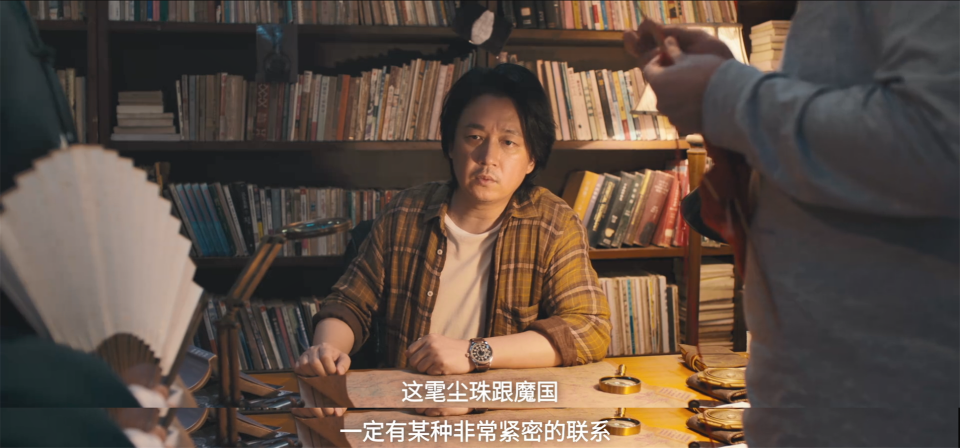
This season's adventure motivation
This is their exploration route: to find the address of the tomb of the mother of ghosts, you must first find the ruins of the Gularuo Dynasty. This led to the first stop of everyone's exploration - the Temple of Reincarnation at the ruins of the Gularuo Dynasty, and then led to the first "monster" - Eating Sin Balu; arrived at Karamir Mountain, and met wolves in Zanggugou; arrived After the dragon top, enter the tomb of the reincarnation sect, and encounter Xue Maitreya; confirm the location of the nine-story demon tower, after the top floor is opened, and fight with the wolves again; after entering the interior of the nine-story demon tower, it is even more dangerous. From the ice worms flying out of the corpse, to the hallucinations of the city of Eurasian Sea, and the battle of the battle striped Jiaojiao at the juncture of the duel...
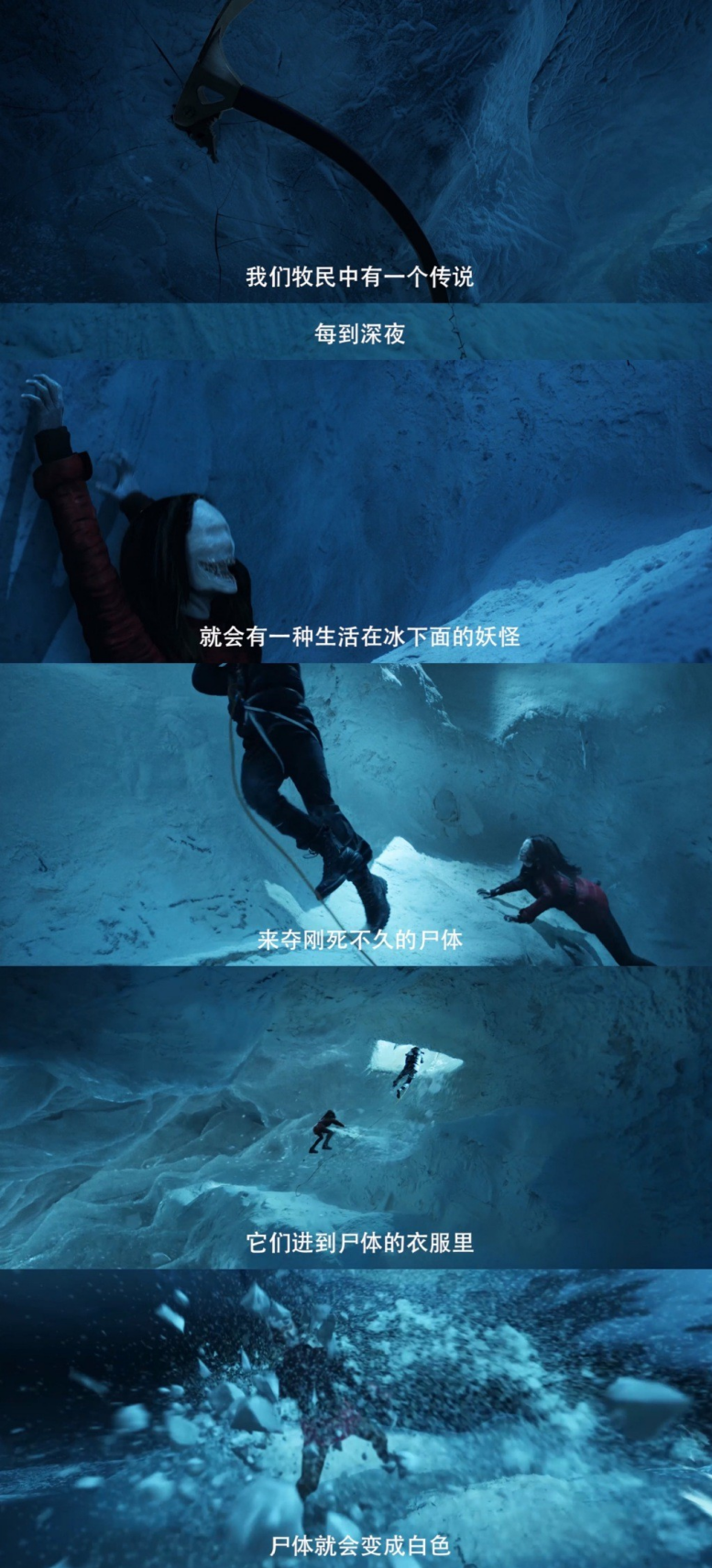
Snow Maitreya
Every exploration point is where the special effects come into play. Compared with several previous works, are the special effects of "Kunlun Shrine" more refined? In fact, there is none. It can only be said that it is "enough". It is not as rough as the Internet, but if you project it onto a large-screen TV, you will find that there is still a lot of room for improvement in the details of the special effects. Although there are many live shooting, there are also The traces of many cutouts are slightly obvious.
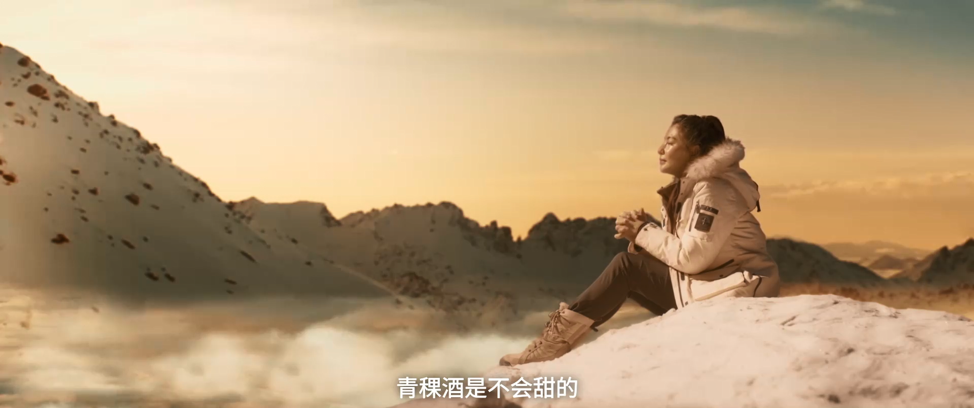
There are a lot of cutouts like this
At the same time, it is not clear whether it is because of concerns about censorship (many descriptions in the novel are too scary and terrifying), or in order to save the cost of special effects, some adventure episodes are directly omitted. For example, the blood bait safflower is gone, the white-bearded fish king battles the striped scorpion, and all kinds of creepy creatures in the city of Eurasian Sea are gone... Compared with the novel, the drama's presentation of the mysterious and exotic world is much simpler.
The creation of an exotic world is not only dependent on "sufficient" special effects, it is also largely inseparable from the creation of an atmosphere. From "Nvqing Xiangxi" to "Kunlun Shrine", a lot of effort has been put into the atmosphere. This is a safe strategy, the special effects are not enough to make up the atmosphere. The changes of light and shadow combined with the thrilling sound effects create a strong sense of suspense. At this time, the "monster" has another jump scare, which can always scare the audience after trial and error.
"Kunlun Shrine" also cleverly uses dreams to portray "weird power and chaos". First, there are some horror scenes of "feudal superstition" and a scene where a character wakes up from a dream. Carrying private goods". The audience is also very happy with this kind of horror, and is willing to follow the protagonist's pace to start a new adventure - after all, it provides a landscape that is almost impossible to see in daily life, and the audience's curiosity is the biggest motivation for chasing the drama.
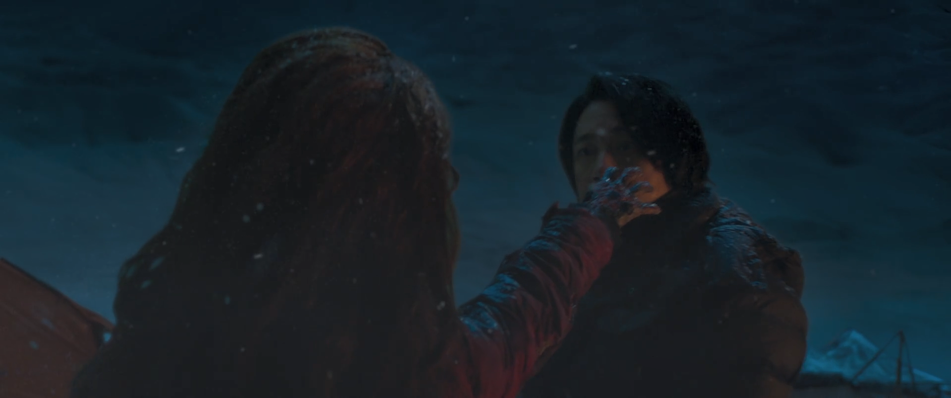
"Zombie" in sleep
It is worth mentioning that the director of "Kunlun Shrine" is Taiwanese director Cai Yuexun (the previous ones were Fei Zhenxiang). The difference between the two directors can still be seen to some extent: Cai Yuexun has a more spectacle in the design of some fighting scenes; the rhythm is controlled with a degree of relaxation, humor and exploration, lyricism and exploration are well combined; rich experience in idol dramas Cai Yuexun, in the grasp of emotional scenes, can hit the hearts of the audience even more. The sad fate of women as sacrifices makes people sad and angry. Several lyrical scenes in the last episode (such as Shirley Yang Yuzhong Feeling Freedom, Shirley Yang and Partridge Whistle) The "reunion") is handled more delicately.
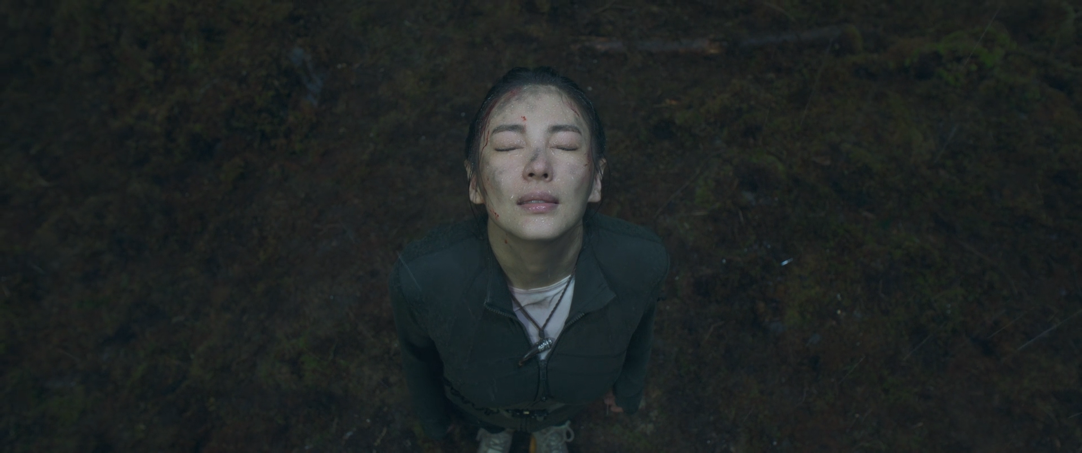
Shirley Yang, who lifts family curse, feels relieved in the rain
All in all, the adaptation of this version of "Kunlun Shrine" is OK. Real life is exhausting, and the mysterious and exotic world created by "Kunlun Shrine" may give us a little stimulation - both visually and psychologically.